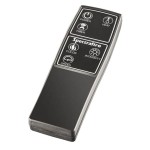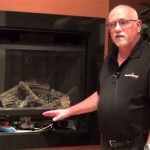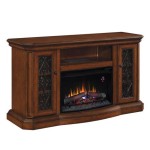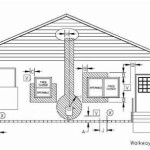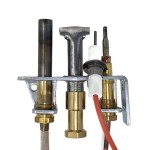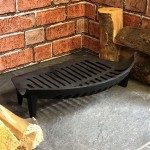Electric Fireplace Heater Cost To Run: A Comprehensive Analysis
Electric fireplace heaters have become increasingly popular as a supplementary heating source and aesthetic feature in homes. Their ease of installation, relatively low upfront cost, and visual appeal make them an attractive alternative to traditional fireplaces or more complex heating systems. However, understanding the operational cost of an electric fireplace heater is crucial for informed decision-making. This article delves into the factors influencing the cost to run an electric fireplace heater, providing a comprehensive analysis to aid consumers in assessing their potential energy expenditure.
Electric fireplace heaters operate by converting electrical energy into heat, typically through a heating element similar to those found in space heaters or electric stoves. The heat is then circulated into the room via a fan. The visual aspect of the fireplace, simulating flames and embers, is usually achieved through LED lights, which consume a relatively small amount of electricity. The total cost to run an electric fireplace heater is dependent on several key variables, including the heater's wattage, the local electricity rate, and the frequency and duration of use.
Understanding Wattage and Kilowatt-Hours
The wattage of an electric fireplace heater is the primary determinant of its energy consumption. Wattage indicates the rate at which the heater consumes electrical energy when operating at its maximum output. Most electric fireplace heaters range from 1000 to 1500 watts. It's important to note that some models have multiple heat settings, allowing users to reduce the wattage and therefore the energy consumption. For example, a heater might have settings for 750 watts and 1500 watts.
To calculate the energy consumption, it's essential to convert watts into kilowatts (kW). One kilowatt is equal to 1000 watts. Therefore, a 1500-watt heater consumes 1.5 kW of electricity per hour when operating at its maximum setting. The amount of electricity consumed is then measured in kilowatt-hours (kWh). A kilowatt-hour represents the energy used by a 1-kilowatt appliance operating for one hour.
Therefore, if the 1500-watt (1.5 kW) heater is run for one hour at its highest setting, it will consume 1.5 kWh of electricity. Understanding the wattage of your specific electric fireplace heater is the first step in estimating its operational cost. Look for the wattage rating on the appliance itself, in its user manual, or on the manufacturer's website.
The Impact of Electricity Rates on Running Costs
The cost of electricity varies significantly depending on geographic location and the electricity provider. Electricity rates are typically expressed in cents per kilowatt-hour (¢/kWh). These rates can fluctuate based on factors such as the cost of fuel used to generate electricity, the availability of renewable energy sources, and governmental regulations.
To accurately estimate the running cost of an electric fireplace heater, it's necessary to determine the current electricity rate in your area. This information can be found on your monthly electricity bill or by contacting your electricity provider directly. Many electricity providers also offer online tools and resources that allow customers to track their energy consumption and estimate their costs.
Once you know your electricity rate, you can calculate the cost to run the electric fireplace heater per hour. For example, if the electricity rate is 15 cents per kilowatt-hour ($0.15/kWh) and you are using a 1500-watt (1.5 kW) heater, the cost to run the heater for one hour at its highest setting would be: 1.5 kWh x $0.15/kWh = $0.225. This means it would cost approximately 22.5 cents to run the heater for one hour.
It is vital to recognize that electricity rates can also vary based on time of day or day of week, particularly with time-of-use (TOU) pricing plans. During peak hours, when electricity demand is highest, the rate may be significantly higher than during off-peak hours. If you have a TOU pricing plan, it's important to consider when you typically use your electric fireplace heater, as this will impact your overall running costs.
Usage Patterns and Their Influence on Total Expenditure
The frequency and duration of use are major factors in determining the overall cost of running an electric fireplace heater. Even a relatively energy-efficient heater can become expensive if used frequently for extended periods. Consider how often you plan to use the fireplace heater and for how long each time.
If you only use the heater occasionally, perhaps for a few hours on cold evenings, the overall cost will be significantly lower compared to using it as a primary heating source for the entire winter season. Keep in mind that many electric fireplace heaters are used primarily for their aesthetic appeal rather than as a primary heating source. In such cases, the heating function may only be used sparingly, minimizing the impact on energy consumption.
To estimate the monthly or seasonal cost, you'll need to project your usage patterns. For instance, if you anticipate using the 1500-watt heater for 3 hours per day, 5 days per week, with an electricity rate of $0.15/kWh, the weekly cost would be: 1.5 kW x 3 hours/day x 5 days/week x $0.15/kWh = $3.375. Therefore, the estimated weekly cost would be approximately $3.38. Multiplying this by the number of weeks in a month will provide an estimate of the monthly running cost.
It's also worth considering the thermostat setting of the electric fireplace heater. Most models have a thermostat that allows you to set a desired room temperature. When the room reaches that temperature, the heater will automatically turn off, saving energy. Using the thermostat effectively can significantly reduce the overall running cost compared to constantly running the heater at its maximum output.
Beyond the wattage and usage patterns, the efficiency of the electric fireplace heater and the insulation of the room it's heating play crucial roles. A well-insulated room will retain heat more effectively, reducing the need for the heater to run continuously. Sealing drafts around windows and doors can also help to minimize heat loss and lower energy consumption. Some higher-end electric fireplace heaters are designed with more efficient heating elements and fan systems, which can result in lower operating costs compared to older or less efficient models.
Ultimately, determining the cost to run an electric fireplace heater requires a careful consideration of all these variables. By understanding the heater's wattage, the local electricity rate, and your usage patterns, you can make a more informed decision about whether an electric fireplace heater is a cost-effective heating solution for your specific needs. Furthermore, optimizing usage habits and improving room insulation can further contribute to reducing energy consumption and lowering overall expenditure. Regularly maintaining the heater by cleaning dust and debris to ensure it operates efficiently is also advisable for optimal performance and cost savings.

Cost To Run An Electric Fireplace 8 Saving Tips Calc

How Much Does It Cost To Run Electric Fireplace In 2024

How Much Does It Cost To Run An Electric Fireplace Use Calculator

ᑕ❶ᑐ How Much Does It Cost To Run An Electric Fireplace

ᑕ❶ᑐ How Much Does It Cost To Run An Electric Fireplace

ᑕ❶ᑐ How Much Does It Cost To Run An Electric Fireplace

How Expensive Is An Led Fire To Run Electric Fireplace Co

Are Electric Fireplaces Expensive To Operate Dimplex

How Much Does An Electric Fireplace Cost 2024 Data Angi

How Much Does It Cost To Run An Electric Fireplace Per Hour Month
Related Posts

